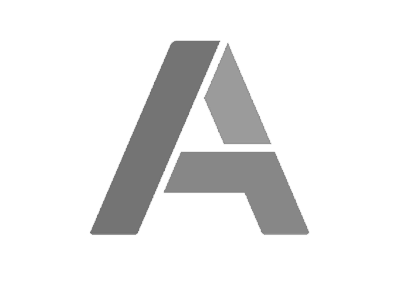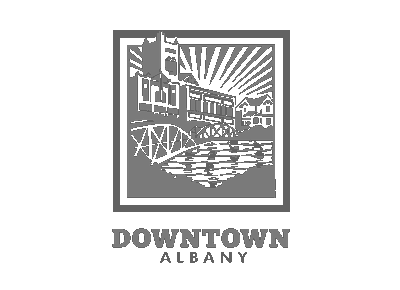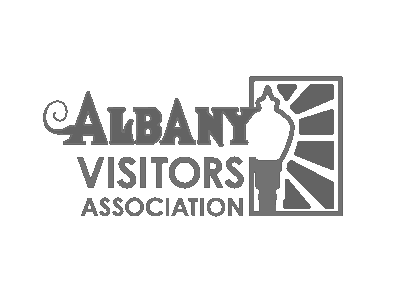About
About the CDBG Program
The City of Albany became a Community Development Block Grant (CDBG) entitlement community in 2013, and receives an annual formula grant from the U.S. Department of Housing and Urban Development (HUD). The purpose of the CDBG program funds is to create viable urban communities through decent housing and suitable living environments, by removing blighted conditions, and expanding economic opportunities. CDBG funds can be used to implement a wide variety of community and economic development eligible activities, to principally benefit low- and moderate-income persons.
The CDBG program provides the City with an essential funding source to financially support a variety of programs and projects including those described on this webpage. Activities funded through the CDBG program must address the priority needs, goals, objectives and strategies identified through the City’s Five-Year Consolidated Plan and Annual Action Plans.
Public Input Opportunities
Each year, the City of Albany prepares an annual Action Plan that describes how CDBG funding will be used to address priorities in the five year Consolidated Plan. Public participation is important in helping the city identify priority needs that could be supported with CDBG funding. The city is continually seeking input from residents and supportive agencies to gain an understanding of priority needs and in setting goals to be included in annual action plans.
Ways to participate and provide input:
Attend Community Development Commission meeting:
The Community Development Commission usually meets on the third Monday of each month at noon.
March 16, 2026, noon
Council Chambers, City Hall
April 20, 2026, noon
Council Chambers, City Hall
Email or call:
541-917-7550
Mail:
Community Development Department
333 Broadalbin St SW
Albany, OR 97321

CDBG funds can be used to remove blighting influences in neighborhoods and improve or provide city facilities or infrastructure in eligible low-income neighborhoods, improve accessibility for disabled persons, and acquire sites and to develop infrastructure for low-income housing development projects. To date, CDBG funds were used to remodel Sunrise Park and add parking and lighting, add infill sidewalks along 19th Avenue SE from Main to Sunrise Elementary School, add curb ramps along the Dave Clark Path, and replace a failing section of Periwinkle Path north of Queen Avenue.
For Residents
Assistance for Albany residents
Home Repairs
Low- and moderate-income Albany homeowners are eligible for forgivable loans for home repairs through Albany Area Habitat for Humanity. Habitat staff oversee the project and pay contractors directly for needed repairs. To learn more, visit Albany Habitat’s website.Weatherization Services
FREE weatherization services and associated repairs are available to low- and moderate-income Albany homeowners from Community Services Consortium (CSC). Inspectors assess the home for energy improvements and eligibility, and work with you and your contractor to improve the livability of your home. Learn more...
Fair Housing
What does housing discrimination look like?
View this brochure to learn more about what housing discrimination looks like (English/Spanish).

Federally-protected classes include:
race
color
national origin
religion
gender
familial status
disability
Oregon-protected classes include:
marital status
source of income
sexual orientation
including gender identity
domestic violence victims
What can I do if I think I'm facing housing discrimination?
If you think you have faced discrimination, or if you would like more information about your rights, please visit the Fair Housing Council of Oregon (FHCO) website or call the hotline, 1-800-5424-3247, ext 2.
Brochures in numerous languages are available for download and staff can respond to questions and complaints having to do with housing discrimination related to federal, state and local laws. 1-800-424-3247. Las publicaciones están disponibles en español y tienen personal que habla español a través del teléfono.
You have one year to file a complaint with the government, and two years to file a lawsuit in federal or state court.
What can I do to help my case?
- Gather as much information as you can to give to Fair Housing Council staff when you call the Fair Housing Hotline at (800) 424-3247 ext. 2.
- Write down the details of what happened, including dates, times, who was involved, as well as the names of possible witnesses.
- Keep an ongoing log of events.
- Save any written materials that relate to your case.
What does the City of Albany do?
Albany works to further fair housing within the City. Albany's Analysis of Impediments to Fair Housing Choice and Fair Housing Plan outline the City's findings regarding fair housing issues identified within the city and steps that will be taken to reduce or remove impediments to fair housing.
Other Resources:
- HUD Fair Housing and Equal Opportunity (FHEO) website contains information to help you if you feel you have experienced housing discrimination.
- Bureau of Labor and Industries (BOLI) - BOLI enforces Oregon´s civil rights laws. These laws ban discrimination against individuals because of characteristics that make them part of a protected class. Anyone claiming to have been discriminated against at work, in a place where the public is served such as a restaurant or a hotel, when buying or renting housing, or when applying for or attending a career school can file a complaint with the BOLI´s Civil Rights Division.
For Agencies
Assistance for agencies
The City continually seeks needs of area agencies that serve Albany’s low- and moderate income residents and residents with special needs. Agency outreach and consultations typically start over the summer and continue into the fall to assess community needs that could be supported in the next fiscal year. The City issues requests for funding in the fall for the next fiscal year. Applications are evaluated over the winter and funding recommendations to include in the next Action Plan are typically made in March, with hearings in April/May. Before applying for funds, applicants must attend a mandatory pre-application workshop to learn more about CDBG program requirements and application materials. The workshops are usually held in late fall of each year.
Subrecipient Reporting
Subrecipients are required to submit a progress report on a quarterly basis that includes beneficiary demographics (from Client Certification Form) to ensure compliance with CDBG program regulations and objectives to primarily serve low- and moderate-income residents and areas. The City then reports this progress to HUD and progress on accomplishing goals and objectives in the five-year Consolidated Plan and annual Action Plan. Below are resources for subrecipients to gather data and report this information in a standardized format. In addition, the City uses a risk assessment to determine which agencies to monitor to verify accuracy of the reported information and compliance with CDBG program requirements.
Subrecipient Forms and Checklists
- Client Certification Form - English (pdf)
- Client Certification Form - Spanish (pdf)
- Quarterly Report (pdf) – due 1/15; 4/15, 7/15, and 10/15.
- Quarterly Report Housing Rehab (pdf)
- Reimbursement Request (pdf) – submitted with Quarterly report (1/15; 4/15, 7/15, 10/15)
- Job Creation/Retention Report (pdf)
- Closeout Report (pdf)
- Activity File Documentation Checklist (pdf) – save these documents in your paper or e-files
Subrecipient Resources
Program Overview
CDBG Policies and Procedures Manual
Albany Capital Projects Manual
Minority and Women’s Business Enterprise
HUD Requirements for Grantees
- CDBG Program Requirements Overview
- CDBG National Objectives Diagram
- CDBG Guide to National Objectives and Eligible Activities (también disponible en español)
- Build America, Buy America Quick Guide: CDBG
- Basically CDBG – comprehensive manual on all aspects of the CDBG program and activities
- Federal Grant Administration in 2 CFR 200, See Subpart D Post Award Requirements
- CDBG Program Regs in 24 CFR 570 Subpart J – Grant Administration
- CDBG Program Regs in 24 CFR 570 Subpart K – Other CDBG Requirements
- SAM.GOV Registration instructions video
Subrecipient Training
- Basically CDBG - comprehensive training slide presentation on the CDBG Program
- Playing by the Rules - Subrecipient Training Handbook
Environmental Review (ER) Record
Contracting for CDBG-assisted Projects
Income Limits
Income Limits
April 15, 2025, HUD Income Limits
| Family Size | |||||||
|---|---|---|---|---|---|---|---|
| 1 | 2 | 3 | 4 | 5 | 6 | 7 | 8 |
| $51,950 | $59,350 | $66,750 | $74,150 | $80,100 | $86,050 | $91,950 | $97,900 |




